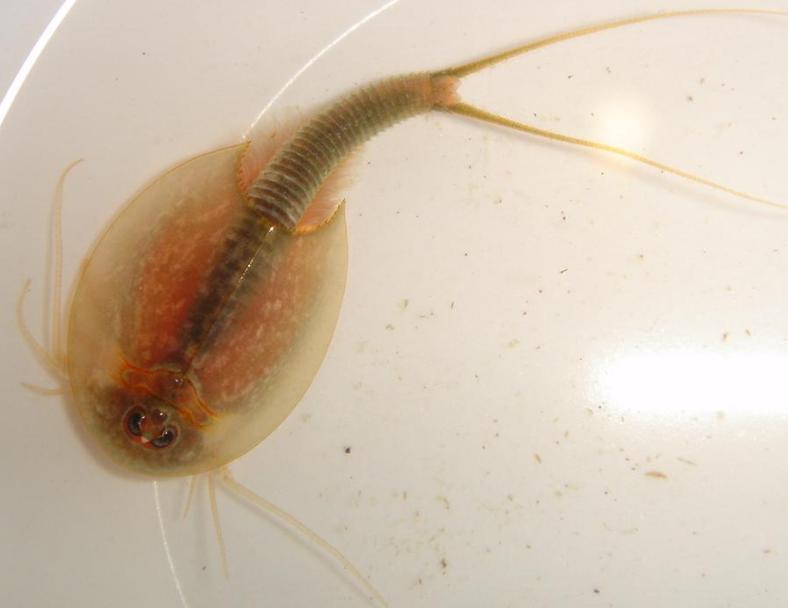WEBIOCOSM ZOO
Last Updated March 07, 2008
Webiocosm

Triops longicaudatus
Triops
This is a Triops, or Triops longicaudatus. It is in the class Branchiopoda and order Nostraca and is sometimes also referred to as a tadpole shrimp. This little crustacean was raised from an egg along with a bunch of other eggs that came in a kit called "Triassic Triops", which I purchased at a local hobby store. I was hoping to put the eggs in a small container and then make a time-lapse video of these things growing over a week or so. For many reasons it didn't work out but I have had a good time watching the two that made it. They are interesting because according to Wikipedia, Their external morphology has apparently not changed since the Triassic appearance of Triops cancriformis around 220 million years ago. Triops cancriformis may therefore be the "oldest living animal species on earth." They also grow very fast and for the first week or more, a substantial increase in size can be seen from day to day. Having had no prior knowledge of this animal, there are too many fine details about its morphology and habits for me to try to get in to so I will just leave you with a couple of good links from people who actually know these animals. Here is the page of the company that produces the kit I bought. Here is the Triops information page.

Triops longicaudatus
Triops
The above pics show the size of my Triops after 2-3 weeks, what the
underside looks like (they frequently swim upside down), and the box
that the kit came in.
Here is a brief
video of my Triops pair at YouTube or a
larger, sharper QuickTime Triops video is here (7.5 mb, 27 sec.).
Here is my original post on Triops longicaudatus on the blog.
References
Genus:
Species:
Genus:
Species:


